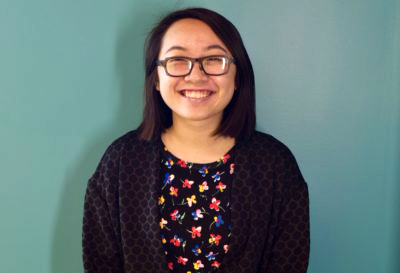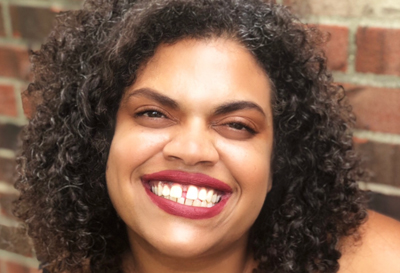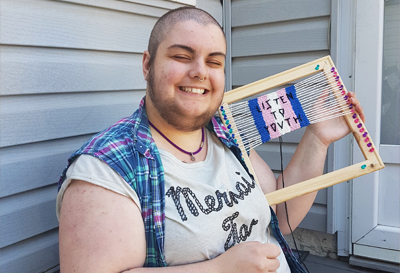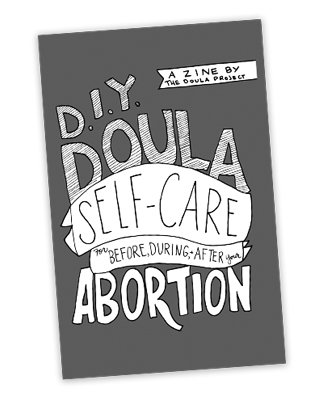Abortion Doulas, With or Without the Title, Provide a Critical Service
“I'm an abortion doula because I see it as a way to ensure a world that is more healed, more just, and more free.”
![[Photo: An illustration of a doula holding the hand of a person about to receive an abortion.]](https://rewirenewsgroup.com/wp-content/uploads/2019/09/abortion-doula-01-800x533.jpg)
Nine states have passed laws in 2019 to ban abortion after a certain point in pregnancy, restricting people’s access to the spectrum of reproductive health-care services. While none of these laws are in effect yet, abortion care becoming illegal is daunting and terrifying for people with a cervix across the United States.
In such a hostile political climate, abortion doulas are becoming a critical resource for patients seeking non-judgmental support. While 95 percent of patients do not regret having an abortion, some do feel regret, sadness, or resentment toward the procedure, and abortion doulas can assist them in processing their feelings and experience.
Although abortion doulas have gained attention in the media in recent years, they “have existed forever,” said LyLy Vang-Yang, an abortion doula based in Minnesota. “They’re our grandmothers, sisters, aunties; they’re our friends.” Indeed, people can fulfill the role of abortion doula with or without the title. A partner, friend, or parent can fill in as a support system, but some people prefer to seek a trained abortion doula for their needs.
An abortion doula is not medically trained, but they do provide emotional support during or after an abortion. Beyond securing the funds, if necessary, to receive this health-care service, a person getting an abortion will need to walk into a clinic, potentially through a crowd of anti-choice protesters; patiently sit in the waiting room; receive the abortion care; exit the building and possibly face more protesters; and administer proper aftercare. An abortion doula can act as their support system through all of these experiences.

While some doulas are full-spectrum, meaning they provide support for prenatal training, births, and postpartum, Vang-Yang practices as only an abortion doula. She was trained through the Minneapolis-based SPIRAL Collective, which teaches its students about compassion and inclusivity by focusing on marginalized communities; the collective uses role-playing to prepare trainees for the different outcomes they may experience with patients in the future. The SPIRAL Collective is one of more than 20 collectives in the United States, and many more abroad, that offer reproductive support services.
“I think it’s imperative now, in a time where people are feeling more scared, hurt, and isolated than ever before, to consider training to become an abortion doula,” Vang-Yang said. “I’m an abortion doula because I see it as a way to ensure a world that is more healed, more just, and more free.”
Becoming an abortion doula is also a way “to practice community care, so that [your] neighbors can feel valued, respected, connected, and supported,” Vang-Yang said.
“As a young woman of color, there are systems of oppression that seek to strip me of my agency and worth,” Vang-Yang added. “As I dig deeper into my own story and find my voice in this world, I see that being an abortion doula allows me to act powerfully in a collective way. In a world that tells me and my community that we’re wrong, [it’s a way] I can support others in honoring and trusting their gut.”
By being an abortion doula, Vang-Yang feels she is able to hold space for people who are seeking this type of community and support. It “actualizes my values in ways that are tangible and brings me a lot of joy,” she said. Those values include the idea that all people, no matter their race or economic status, have worth and that “no one is disposable.”
Creating a just and free world means offering services to marginalized communities that have to overcome barriers in order to access abortions. LGBTQ people and people of color, for example, are continually stigmatized when seeking reproductive health care. Abortions are difficult to access for people in these communities as they face anti-choice restrictions as well as lack of support.

Doulas like Chaney Williams offer “full-spectrum support,” meaning assistance throughout a person’s fertility journey—including during a pregnancy, abortion, miscarriage, or birth. The Kentuckian first heard the term “full-spectrum doula” three years ago, when she was in a Master of Fine Arts program and too preoccupied to pursue doula work full time. She had been interested in being a birth and postpartum doula since she was 14, after reading the Rat Brat Zine, which explained basic definitions and offered resources for readers interested in training courses. Once she was able to commit, she began looking into becoming a full-spectrum doula.
Williams took a three-day training in 2018 with the Louisville Doula Project, which provides students with “non judgmental support, listening, and seeing what kind of support the individual wants, a history of abortion in the United States, and going through the different kinds of abortions that are done,” she said.
Her practice expanded to include the full spectrum of care because, as she explained, “through miscarriage, birth, postpartum, abortion, and beyond, people can feel isolated and not seen during their experiences. As a full spectrum doula it’s important to me that I give folks the support they desire and need based on their individual preferences and experiences.”
Although there is no or a minimal cost for becoming an abortion doula, the cost of training to become a full-spectrum doula can range from $300 to $500. That can be a barrier for some, especially when additional expenses are tacked on for other classes, workshops, course materials, or certification fees. Abroad, it can cost as much as $700; in Canada, where Brieal is based, it’s roughly $450.

Brieal, who uses fae/faer pronouns, started a GoFundMe to receive a certificate in sexual health and begin certification to become a full-spectrum doula. The recent election of conservative government leaders in Brieal’s area influenced faer interest in “providing a buffer” for people who may feel shame or stigma around seeking health care to which they are entitled. Fae explained that “being able to push back against [conservative lawmakers’] possible future policies because of what’s been happening in the States and Ontario is important to me.”
Of course, hiring a doula is by no means affordable for the average person. A birth doula typically costs around $1,200, depending on where you live, and is not covered by insurance. Having a doula is undoubtedly a privilege and a luxury. But many abortion doulas or collectives provide free services for low-income folks and others in need. For example, Cicada Collective in Texas offers transportation, housing, and financial assistance for queer and transgender people of color. Most collectives are volunteer-run and provide information and services entirely free of charge.
The Doula Project in New York City—which opened in 2007 and works to increase access for people who need support with birth, miscarriage, stillbirth, abortion, or fetal anomaly—has created a blueprint for future collectives. Its network of over 50 full-spectrum volunteer doulas, who also work as activists, teachers, educators, social workers, and health professionals, provides support services to community members free of charge, regardless of income.
The Doula Project has brought to fruition ideas like the DIY Doula: Self-Care for Before, During, & After Your Abortion zine, which was created by Mick Moran with funding from the Abortion Conversation Project and with the collaboration of approximately two dozen abortion doulas. The 48-page zine includes advice, comics, exercises, and essays, allowing its creators to become what Moran described as “long-distance doulas to people who might not have access to a doula in their communities.”

“We’ve heard from people who say they wish they had had a resource like that when they had an abortion, and we’ve gotten hugs from people who said they read our zine from cover to cover before their procedure,” Moran said.
While a comic or zine can be an introduction to the work, people like Williams seek to build relationships and offer guidance for their clients who are close by. Williams said people may hire an abortion doula to “just be there for the person in any capacity they need.”
In many ways, abortion doula work is activism at its core. It’s a way to fight back against the stigma pushed by the anti-choice movement and legislators’ efforts to take away reproductive freedom. Abortion doulas can provide complete emotional support through what can be a highly emotional and sometimes intense procedure. With the Guttmacher Institute demonstrating that one in four women in the United States have an abortion by the age of 45, abortion doulas have their work cut out for them.
“As abortion doulas, we are there to hold space and give the person receiving an abortion the support they desire, which can change based on the individual’s experience and needs,” said Williams.
While not everyone may need to work with a doula during their abortion, others find solace and security in knowing they have a hand to hold along the way.
